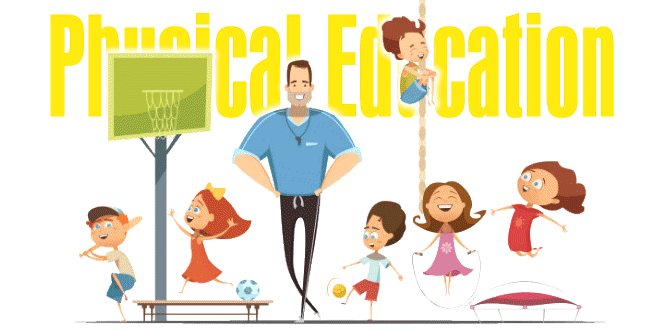Physiology And Sports: 11th Class Chapter 9
Psychology
Psychology is the study of mind, thoughts feeling and behavior.
Sports Psychology
It deals with the human behavior, motivation and aspiration in particular sports situations to achieve their optimal performance.
Importance Of Sports Psychology
Every sports person knows that their best performances come from their mind as much as their body.
- In understanding the behavior: Sports psychology is importance for coaches not only to understand the behavior but also in modification of behavior in various sports situations such as coaches should know the interest of players towards physical activity before selecting them for competition.
- Learning the motor skills: Sports psychology plays an important role in the learning of motor skills which are totally depends on individual’s level of physiological & psychological.
- In controlling the emotions: Emotions like anger, disgust, fear, negative & self thinking etc. are not controlled well on time the performance may be decreased so sports psychology is important to every sports person.
- Enhancement of physical components: Motivation plays a major role in the enhancement of physical capacities of sports persons such as strength, speed, flexibility, endurance and coordinative abilities.
Growth
The meaning of growth is termed as increase in size, height and weight. In human body the increase in size of heart, lungs, brain, muscle etc. is known as growth.
Development
The term development is referred as improvement of functioning. For example, increase in size of heart is known as growth of heart however the improvement of functioning. For example, increase in size of heart is known as growth of heart however the improvement of functioning of heart is known as development of the heart.
Differentiate Between Growth And Development
Growth:
- It can be measured.
- Growth occurs up to a particular age.
- It is related to the changes in human in size, length, weight and height.
- It is one aspect of human nature and its area is limited.
Development:
- Its measurement is a hard task and it can be inspected.
- Development is a long process which is never ending.
- It is related to the improvement of functioning.
- It is related to all aspects and its area is Unlimited.
Development Characteristics at Different Stages of Development
1. Infancy Period
The infancy period from birth and end at 5 years of age.
- Physical Development:
(i) The rapid growth in size and weight like at birth, the weight of the child is about 3 kg and reaches approximately five times at the age of 5 years.
(ii) There is great expansion of the head and chest.
(iii) Brain weight also increases rapidly.
(iv) Bones and muscles grow rapidly. - Intellectual Development:
(i) At the time of birth, infants show interest towards hunger then at age of 5 he takes interest in playing.
(ii) The child learns to speak around the age of 18 months.
(iii) He also starts thinking and anticipating also. - Emotional Development:
(i) The emotions of infants are not specific.
(ii) The emotions of fear, anger, hunger and love can be seen in them. - Social development:
(i) Infants are born socially blank.
(ii) Till the age of 2, he remains with parents but at the age of 3 he starts liking to play in groups.
2. Late childhood Period
Late childhood period starts at the age of 5 years of age ends at the age of 12 years. Slow growth is there.
- Physical Development:
(i) The early childhood teeth start falling and permanent teeth start growing.
(ii) The growth of girls is more than boys.
(iii) There is fast growth of muscles. - Intellectual Development:
(i) At 12 years old, he has sufficient interactive language skills.
(ii) He improves thinking, reasoning, anticipating, remembering etc. - Emotional Development:
(i) The emotional behavior becomes stable and remains under control.
(ii) The child becomes conscious of his self-respect.
(iii) At this age, sentiments and complexes are formed. - Social Development:
(i) Around 12 years old, he plays team games and form bigger social circle.
(ii) The leadership qualities become prominent in them.
3. Adolescence Period:
It starts at around 12 years and ends at 19 years of age.
- Physical Development:
(i) During this period growth becomes very fast.
(ii) The voice of both genders gets distinguished as the boy’s voice gets more deepened.
(iii) The public of hair grow of both genders.
(iv) The menstruation period also begins in girls. - Intellectual Development:
(i) The growth of intelligence takes place very fast.
(ii) The memory level is achieved to its maximum.
(iii) The development of imagination also reaches to its aximum. - Emotional development:
(i) Its the period of high emotional evolution.
(ii) They possess anger and react to criticism.
(iii) Emotions are not under controlled. - Social Development:
(i) At this age, boys and girls attract each other’s attention.
(ii) Adolescents like to do social service as well.
4. Adulthood Period
It is the longest span among all the life stages and characterized by maturity.
- Physical Development:
(i) Maturity of muscles takes place.
(ii) The strength of muscles improves.
(iii) The body weight may get increased due to changes in lifestyle. - Intellectual Development:
(i) They understand the present situation and try to make adjustments accordingly.
(ii) The adults are able to do all the intellectual activities.
(iii) They start thinking rationally and intelligently. - Emotional Development:
(i) The emotions are very much controlled.
(ii) They accept criticism criticism gracefully as being honest and they are glad to have an opportunity to improve. - Social Development:
(i) They usually becomes responsible.
(ii) They are open minded and listen thoughtfully to the opinion of others.
Adolescent Problems & Their Management
It is an age in which the adolescent gives up the childhood habits and tries to take initiatives in doing something new by himself.
Adolescent Problems
1. Biological Problems:
- Due to rapid physical growth, menstrual cycle starts in Girls which create fear & depression and the voice becomes hoarse in boys.
2. Aggressive Behavior:
- There is wide range of behaviors like explosive temper, tantrums, physical aggression, fighting, threats or attempt to hurt others it occurs especially when they are compelled to an activity which is against their desire / liking.
3. Emotionally:
- Sudden changes of mood are very normal part of growing up. They might feel happy in a moment and sad in the other.
- Feeling of self-hate and anxiety can make adolescents very depressed.
4. Social Status:
- They are very much conscious of their self respect.
- If the position and prestige is hurt by someone in front of their friends then there will be a big problem for them which become intense.
5. Freedom:
- During this period, every adolescent needs freedom because they think that they know everything, there is no need of any parental advice or control.
6. Juvenile Delinquency:
- Adolescents show their interest in offences like theft, mischief, stealing and violent behavior etc. or teenagers forms a street gangs as well.
7. Drug Abuse:
- Addiction of prohibited substances are found to be more among teenagers due to curiosity, lack of knowledge & peer group pressure which result into death.
Management Of Adolescent Problems
- Parental guidance:
Parental should guide their children’s properly at every step and don’t leave them alone in their intense situation. - Sympathetic & affectionate attitude:
The rude behavior of parents makes them aggressive & irritable so always make liberal attitude towards them. - Democracy in the family:
Parents should make democratic atmosphere ion the family for the proper growth and development. - Father – Mother relationship:
Never discuss or fight on any topic in front of their children.
Always make a healthy relationship. - Participation in Co-Curricular activities:
Participation in sports and cultural activities engage the adolescents or utilize their surplus energy in a positive way which makes them free from stress and strain. - Recognition of individuality:
Sometimes adolescents feel disturbed whenever they are treated like a small kids so always give them due respect and responsibility. - Religious Education:
Parents should visit to religious places along with adolescents and religious education should also be given which helps in the development of good character. - Sex and health education:
It is important to talk on sex education frankly and scientific manner with adolescents so that they should not be in under confusion with their rapid physical changes in their bodies. - Independence and freedom:
Adolescents should be given limited freedom and responsibility according to the situations which makes them responsible and confident.
Psychology And Sports: Questions Carrying 03 Marks
- Explain the importance of Psychology.
- What do you mean by sports Psychology?
- Write any three importance of Sports Psychology.
- Differentiate between growth and development.
- Elaborate the developmental characteristics of adulthood.
- Write any three problems of adolescents.
- How problems of adolescence can be managed?
Psychology And Sports: Questions Carrying 05 Marks
- Elaborate the importance of Psychology in Physical Education and Sports.
- Write in detail about developmental characteristics at different stages of development.
- Explain the problems of adolescence.
- How the problems of Adolescent can be managed?
 Class Notes NCERT Solutions for CBSE Students
Class Notes NCERT Solutions for CBSE Students



